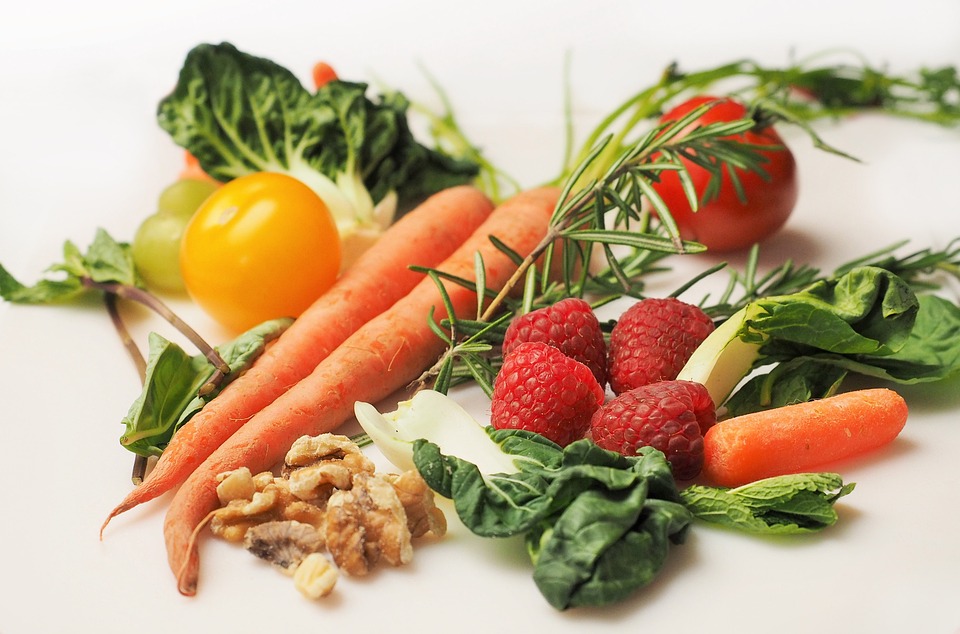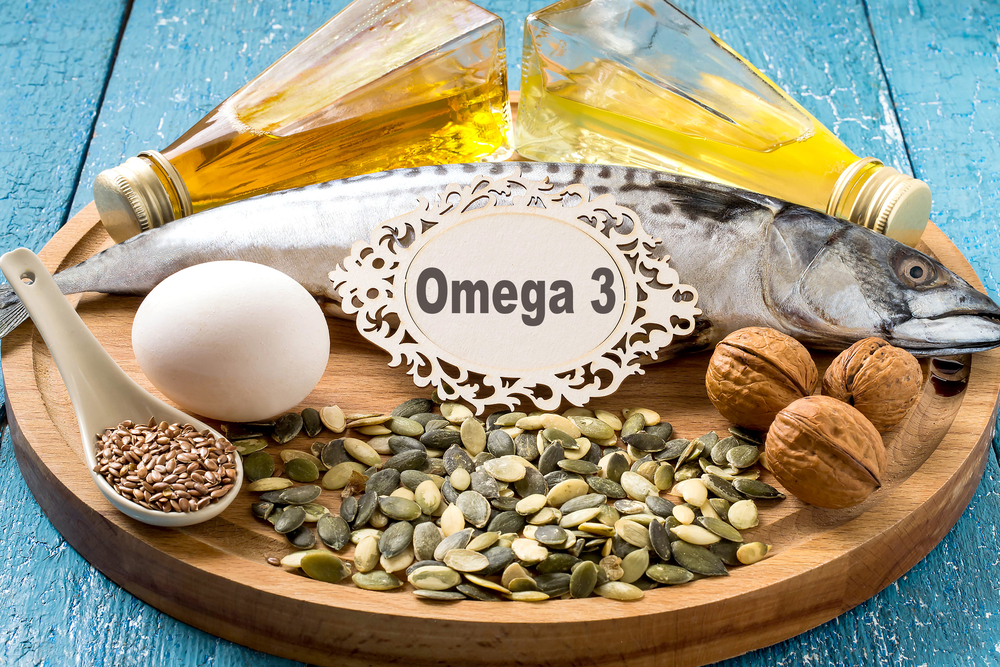Lupus is a chronic autoimmune disease where the body’s immune system becomes overactive and attacks healthy tissues. This condition causes inflammation, swelling, and damage to joints and body organs, including the skin, heart, and kidneys, among others.
Lupus is treatable and is often managed with medication and lifestyle therapies, including a healthy diet. There are different types of lupus, with systemic lupus erythematosus(SLE) being the most common.
In the United States, there are around 16,000 new cases of lupus yearly and up to 1.5 million Americans living with the condition. While there is no set diet for lupus, focusing on healthy eating habits can help immensely with overall disease management.
You should aim to eat a healthy and balanced diet that includes fresh fruits and vegetables, whole grains, and moderate amounts of lean meats and oily fish. There are no foods that cause lupus or that can cure it. Still, good nutrition is an important part of an overall treatment plan for the disease.
In general, people with lupus should aim for a well-balanced diet that includes plenty of fruits, vegetables, and whole grains. It should also include moderate amounts of meats, poultry, and oily fish.
If you have lupus, following a varied, healthy diet may help:
- Reduce inflammation and other symptoms
- Maintain strong bones and muscles
- Combat the side effects of medications
- Achieve or maintain a healthy weight
- Reduce the risk of heart disease
Here’s what you need to know about lupus, diet, and nutrition to gain these important benefits.
Reducing Inflammation
Lupus is an inflammatory disease. So it’s possible, though not proven, that foods that fight inflammation could help lupus symptoms.
Foods that could help inflammation
These include foods rich in antioxidants like fruits and vegetables. And also food groups rich in omega-3 fatty acids, which have been shown to lessen inflammation, like:
- fish
- Nuts and ground flaxseed
- Oils like olive and canola
Foods that could cause inflammation
These include processed and fatty foods high in saturated fats, which could raise cholesterol levels and may contribute to inflammation. Sources include:
- Fried foods
- Commercial baked goods
- Creamed soups and sauces
- Red meat
- Animal fat
- Processed meat products
- High-fat dairy like whole milk, cream, cheeses, butter, and ice cream
One specific food that could be a problem is alfalfa sprouts. Alfalfa tablets in particular seem to cause lupus flares or lupus-like signs and symptoms such as tiredness, muscle pain, kidney issues, and unusual blood test results.
These problems may be due to a reaction to an amino acid found in alfalfa sprouts and seeds. This amino acid can activate the immune system and increase inflammation in people with lupus. Garlic may also stimulate the immune system in a similar way. Scientists continue to study the issue.
Countering Side Effects Of Lupus Medications
Foods to help counter weakening bones
Good nutrition is important for strong bones. For people with lupus, bone health is a particular concern. That’s because medications used to treat it — especially corticosteroids — can increase the risk for osteoporosis, a condition in which the bones become less dense and break easily.
Eating foods high in calcium and vitamin D is important for bone health. When buying dairy products, choose ones that are either low-fat or fat-free. Good choices include:
- 1% or 1/2% skim milk
- Low-fat, low-sodium yogurt
- Low-fat cheese
If you cannot drink milk, good alternatives include:
- Lactose-free milk
- Soy milk
- Almond milk
- Juices fortified with calcium and vitamin D
Dark green vegetables are another source of calcium. If you don’t get enough calcium in your diet, your doctor will probably recommend a calcium supplement.
Foods to help counter folic acid loss
One of the side effects of the lupus drug methotrexate (Rheumatrex) is that it interferes with the way your body processes folic acid. That means you might need to get more of it from your diet. You can get more folic acid from foods like:
- Leafy green vegetables
- Fruits
- Fortified breads and cereals
- Folic acid supplement (ask your doctor about this)
Foods and diet tricks to help counter nausea and upset stomach
To start with, it’s a good idea to avoid greasy, spicy, and acidic foods. After that, try to eat small frequent meals made up of foods that are easy to digest such as:
- Dry cereals
- Breads
- Crackers
If corticosteroid or nonsteroidal anti-inflammatory drugs such as ibuprofen (Motrin) or naproxen(Naprosyn, Aleve) cause stomach upset and irritation, taking them with meals may help. But let your doctor know that you are having some stomach upset from the drugs.
Foods to help lower blood pressure
Some lupus meds, like corticosteroids, can raise your blood pressure. Look for low-salt foods that help cut down on the amount of fluid that your body holds (fluid retention). This can help lower your blood pressure. Fresh fruits and vegetables are a good place to start.
Healthy Diet Benefits
If you have lupus, eating a balanced and healthy diet has its many benefits, including:
Reducing inflammation and other disease symptoms
Because lupus is an inflammatory condition, it’s possible that eating foods considered anti-inflammatory can fight against inflammation and reduce lupus symptoms. Further, avoiding foods that promote inflammation may prevent disease symptoms.
Keeping bones and muscles strong
Good nutrition helps to maintain bone and muscle strength. Eating foods high in calcium and vitamin D are vital for your bone health and may help to counteract the effect of some of the medications you take to treat lupus.
Some medications (for example, corticosteroids) may increase your risk for osteoporosis, a condition that causes bones to be less dense, increasing the risk for fractures.
Managing medication side effects
In addition to counteracting the bone-damaging effects of corticosteroids, a healthy diet may help combat other drug side effects, including fluid retention and increased blood pressure.
Achieving and maintaining a healthy weight
Weight loss and loss of appetite are also common with lupus. Additionally, medication side effects can contribute to weight loss and gain. Weight gain is also caused by inactivity, often a consequence of living with joint pain from lupus.
If you are having a problem maintaining a healthy weight, talk to your healthcare provider about assessing your diet and incorporating exercise into your lifestyle.
Reducing risk for comorbid condition
Lupus is associated with several comorbid conditions including heart disease, osteoporosis, thyroid disease, and Sjogren’s syndrome. Comorbid conditions are chronic in nature and exist simultaneously.
For example, people with lupus have a higher risk of heart disease compared to others in the general population. If you have risk factors for heart disease or other comorbid conditions, eating a well-balanced, healthy diet and staying active may help reduce your risk for comorbid conditions.
Achieving or Maintaining a Healthy Weight
Lupus may be associated with unhealthy weight loss or weight gain. So eating to achieve a healthy weight is important. Weight loss and poor appetite, common among people recently diagnosed with lupus, can result from the illness itself.
It can also result from medications that cause stomach upset or mouth sores. Weight gain can be the result of inactivity. It can also be caused by the corticosteroids used to control the disease.
If weight loss or gain is a problem, it is important to speak with your doctor or nurse. The doctor or nurse can assess your diet and suggest a program to help control your weight.
The program will probably include a low-fat diet and exercise. A registered dietitian can help you design a diet specifically for your needs and lifestyle.
Considerations
As you make changes to your diet, it is important to consider your ability to stick to a new diet and the things that can help you along the way.
Nutrition
The Dietary Guidelines for Americans recommend that most adult caloric intakes should come from the following:
- Between 45% to 65% carbohydrates
- Between 10% to 30% protein
- Between 20% to 35% fat
While it is helpful to follow these guidelines, you should still check with your healthcare provider on whether you need a diet plan based on risk factors and any comorbid conditions. Your practitioner or a dietitian can provide specific information about managing your weight and making healthy diet choices.
Safety
Because people with lupus have problems digesting fatty foods, you will want to limit these foods from your diet. Additionally, these foods have been reported to increase inflammation.
Some examples of foods containing saturated fats include high-fat dairy, fried foods, creamed soups and sauces, processed meats (sausages, hot dogs, luncheon meats, etc.), and red meats.
You can substitute saturated fats with healthier ones. Foods that contain healthier, unsaturated foods include nuts, seeds, avocados, and some oils, such as olive, soybean, peanut, and avocado oil. Because these fats are still high in calories, you should monitor the amounts used and consumed.
Flexibility
The diet changes you make to manage lupus are a lifestyle choice, rather than a specific diet. You are in control of the food choices you make and are not required to follow specific meal plans, food restrictions, or complicated recipes.
The only thing you will need with a lupus-friendly diet is the self-discipline to make healthy choices and to stay away from processed and junk foods.
Dietary Approaches
A well-rounded diet focusing on anti-inflammatory and whole foods provides a wide range of nutrients and may reduce inflammation, keep lupus symptoms at bay, help with maintaining a healthy weight, and reduce the risk for disease complications and comorbid conditions.
And while there is no specific recommended diet for lupus, there are some diets you may want to ask your healthcare provider or a dietitian about.
Mediterranean Diet
The Mediterranean diet emphasizes fruits and vegetables, whole grains, beans, nuts, legumes, seafood, and olive oil. Other foods, such as poultry, eggs, cheese, and yogurt are also permitted, but in moderation. A 2018 report finds “low adherence” to a Mediterranean diet is directly connected to high levels of inflammation.
Anti-Inflammatory Diet
Anti-inflammatory diets are based on the Mediterranean diet. They include extra recommendations, such as green tea and healthy sweets like dark chocolate, and heavy promotion of fruits and vegetables. An anti-inflammatory diet also includes regular consumption of omega-3 fatty acids and prohibits fried and junk foods.
Studies on diet, autoimmune disease, and lupus confirm the consumption of omega-3 fatty acids, as part of an anti-inflammatory diet, can decrease levels of inflammatory proteins in the body.
Vegan or Vegetarian Diet
Some people believe by reducing the number of inflammatory foods—like meat and dairy—and increasing the number of fresh fruits and vegetables, whole grains, and legumes consumed, a plant-based diet can heal the body.
While this is a good approach, it might be a good idea to include a multivitamin in your diet, as there are some nutrients you can only get from animal products. You should also talk to your healthcare provider before starting any diet that restricts an entire food group.
READ MORE: Becoming A Healthy Vegetarian
Gluten-Free Diet
Following a gluten-free diet involves avoiding wheat and other grains and choosing healthy substitutes to provide you the nutrients you need for a healthy diet.
But unless you have celiac disease or a gluten sensitivity, a gluten-free diet probably won’t improve lupus symptoms. In fact, there is little evidence confirming gluten worsens inflammation or that a gluten-free diet can improve lupus symptoms.
Elimination Diet
Elimination diets are helpful for learning whether or not certain foods are causing or making disease symptoms worse. If they are, removing or limiting these foods from your diet may reduce symptoms.
You can figure out what these foods are by not eating certain types of foods for weeks at a time and noting how you are feeling. You then re-introduce eliminated foods slowly. If you notice a return in symptoms by eating a particular food, you may want to exclude it from your diet.
Paleo Diet
Researchers have described elimination diets as extensions of the paleo diet. With the paleo diet, you only eat foods rich in vitamins and nutrients that do not contain sugar or other additives.
This usually includes lean meats, fruits and vegetables, nuts, and seeds. While there is definitely benefit in eating whole foods, there has been no evidence confirming a paleo diet can reduce or eliminate lupus symptoms.
Takeaway
Lupus affects each person with the condition differently. Diet changes that work for one person may not work for another. Keeping a food journal can help you to figure out which foods may affect you negatively and which foods might help to manage symptoms.
Discuss with your healthcare provider or a dietitian about how different foods and diet plans can improve or worsen disease symptoms. It is also a good idea to talk to your practitioner before starting any diet, so they help modify a plan based on your known and unique health issues.









